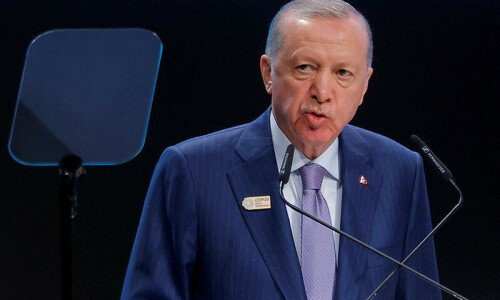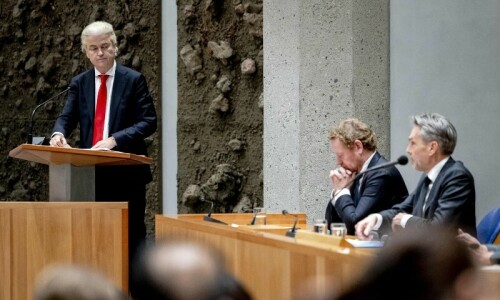THEY are talking, they may not be talking; they could be talking or perhaps they aren’t at all. It could be that the uncertainty is rooted in the very premise of talks between the government and the Taliban, whose explicit agenda is the violent overthrow of the state and whose active existence the latter has been unable to regulate or contain. Information Minister Pervez Rashid has said yes, a backchannel has been activated with some elements of the Taliban; nothing doing, the TTP spokesperson Shahidullah Shahid, has claimed. Who is right will in time become clear, but what is already evident is that the talk of talks is not going away. Since June, the federal government has vacillated on the matter, blowing hot and cold on the issue of talks without quite giving up on its campaign rhetoric that talks were the preferred, though not the only, option.
This newspaper has long expressed deep reservations about the prospects of a negotiated settlement with the Taliban: who to negotiate with; what, if any, middle ground can be found; how will the state ensure the Taliban don’t use the breather of talks to consolidate; how and who will ensure compliance of any deal with the Taliban. These and more are some of the complicated questions to which there are no good answers, even when asked of the proponents of talks. But there being no good answers has not deterred the proponents, especially the religious parties whose leaders have repeatedly offered their services as interlocutors between the government and the Taliban. This theory too is untested: can the JUI-F or the JI or smaller religiously inclined groups act as effective interlocutors? The leaders of these parties certainly believe so, but from the outside it’s difficult to say how much of that is motivated by fear of or sympathy for the militant cause.
If talks are to succeed, at a bare minimum the government will likely have to promise some kind of amnesty to militant groups. But what beyond that? Can reconciled groups be allowed to remain armed or to control terrain? Will any of them snap ties with Al Qaeda and evict foreign militants in their midst? Will they demand safe passage to Afghanistan and sanctuary in Pakistan to fight the Afghan government and the dwindling foreign troops there? Is any of that in Pakistan’s long-term interests? The government has won the right to govern for five years, but myopia in the early days can have lasting consequences.









































